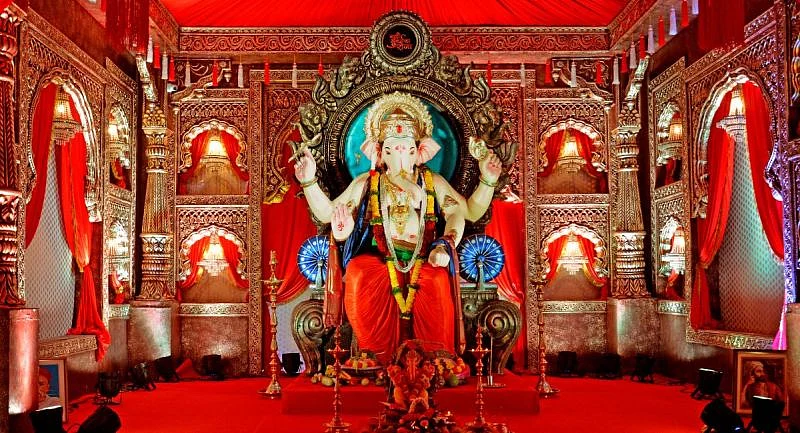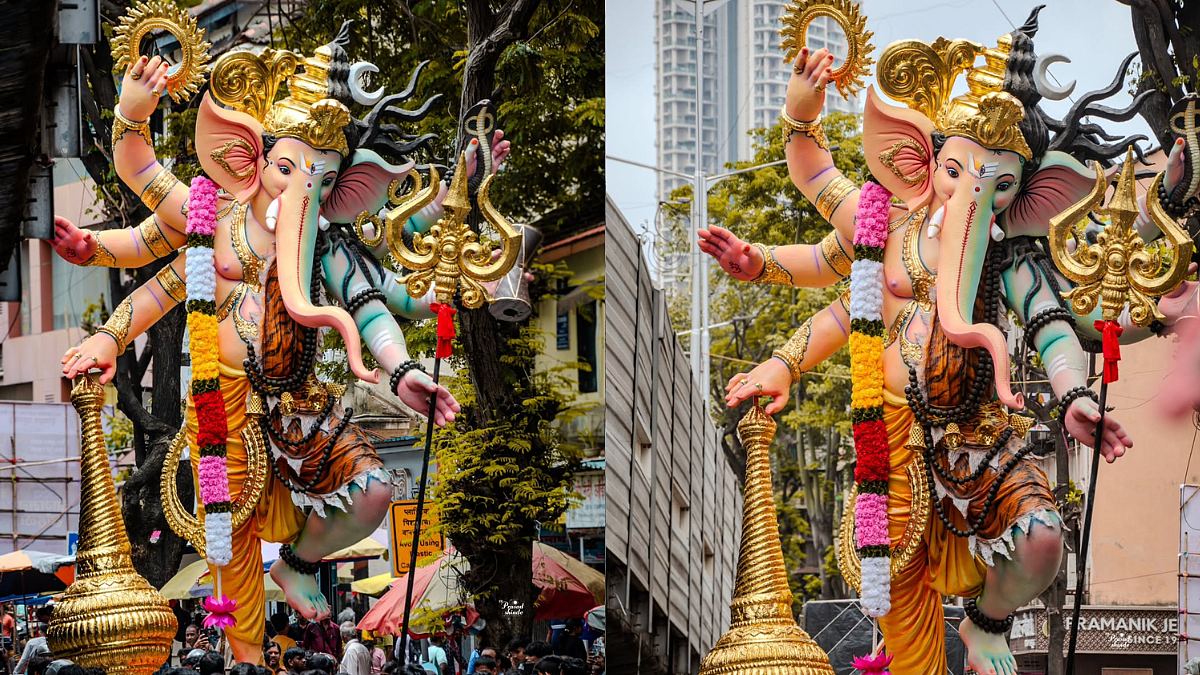In the public mind, Shiv and Shankar are one and the same: Shiv-Shankar, Bholenath, Kailashpati: hundreds of names. All names are beautiful. But if we understand the meaning of these names by going into the depths of spirituality, their beauty increases further.
Shiv means the soul, the pure truth. You say Shivoham, just as the Upanishads say, Aham Brahmasmi or Poornoham. You would not ordinarily say Shankroham. When the Supreme Truth is known as nirgun - nitya - nirakaar - nirvishesh (virtueless - timeless - formless –non-subjective), it is addressed by the name Shiv. Shiv can in fact have no form, no body, no abode, no gender, no family, and no virtue. This is because all the causes of human suffering are contained in this material, visible, virtuous world.
All that comes under the purview of the senses, becomes the content of the mind, and keeps the person in confusion. It is essential that the Ultimate Truth be seen as free of form, color and shape. If we make the Ultimate Truth also a thing of the world and start giving it form, color and shape, then would there be any possibility left for human liberation? Therefore Shiv has to be formless.
Now let us come to the limitations of the common man. Nirgun and Nirakaar are mere words for the ordinary mind. Since our birth, all our experiences are of shapes, forms and bodies. Therefore, most people are not aware of Nirguna-Sadhana, nor are they able to relate with the shapeless and thoughtless. For most people, trying to imagine a truth which has form becomes unavoidable. This is where Shankar arrives. If Shiv is the Absolute Truth (Brahm-satya), then Shankar is the God (Ishwar). Brahm and God are very different, but worship is almost always of God. The common man also considers God more useful for himself. Shiv cannot be defined, but Shankar has definite characteristics. Shiv has no family, but Shankar has a family, wife, children, everything. Shankar can be the character of a purana or a story, but not Shiv. All that we know by the name of Shivpuran is actually Shankar's story.
Shiv is the truth, the Brahm. Shiv is eternal, a point without beginning or end, because of which we are, and who we are. Shiv is undescribable, even to say the word Shiv is limiting Shiv. If you really want to say Shiv, you will have to disappear in deep silence. Shiv is that which words are incapable of describing. You can say as much as you want about Shankar. Shankar is the highest a man’s imagination can reach, the biggest palace it can build, and the strongest ideal it can set for itself. Shankar is the highest peak. The maximum flight of the mind is Shankar, and Shiv is the disappearance of the mind in the sky, that disappearance is the essence of Shiv. Shiv is the open sky. Shankar is the highest flight of the mind-bird. The subtlest point of thought is Shankar, and Shiv is thoughtlessness.
Even though there is unity between Shiv and Shankar, the difference between them is the same as that between the Ram of Saint Kabirdas and other saints, and Ram, the son of Dasharath. When saints repeatedly say 'Ram', they are talking about Shiv, and the Ram of Ramayana is Shankar. Shankar is the sublime flight of man's mind, and Shiv is the liberated sky. Both are important, both are necessary. Worshiping Shiv is difficult. To know Shiv, one has to be Shiv, and if one has become Shiv, then whom to worship? But worship is necessary for our ego to bow down. If one wants to worship, then Shankar will also be necessary. Shiv is unthinkable - cannot be captured in words, cannot be included in thought, and cannot be represented in pictures and idols. Shankar has a form and virtue, is close to the mind and can be accepted by the intellect.
Shakti is the Yogmaya contained in Shiv. The power of Shiv is the entire virtuous world, the Trinitarian nature. In the form of Shakti, Shiv is the entire world. Shakti means this entire system, this existence, this game, this movement, this flow of energy. Everything we can know is Shakti. In existence, there is only Shakti, Shiv is invisible. Only Shakti can be reflected, there can be no representation of Shiv. Shiv-Shakti is often depicted half-and-half as Ardhanarishvar. Such depiction is not appropriate. If Shiv is to be depicted, then Shiv must be shown in a point form within the heart of Shakti. If Shakti is the entire expanse, then the point sitting in the middle of that entire expanse is Shiv. Combining two-halves distorts the beautiful concept of Ardhanarishvar. Shakti is the whole body; Shiv is the center, heart and soul of that body.
Shakti is existence. If you have to reach Shiv, then what is the means? One will have to worship Shakti. Otherwise where will Shiv be found? Shiv is in the heart of Shakti, Shiv is in the realm of Shakti, and Shakti means the world, Shakti means all aspects of the world, all duality, all sunlight and shadow. Apart from these, where is Shiv going to be found? Shiv cannot be worshiped without Shakti. In fact, worship can only be of Shakti. The one who has worshiped Shakti has found Shiv. Whoever neglects Shakti and wants to reach Shiv will continue to wander.
Begin the spiritual search with nature-Shakti-life. If you want to know the truth, look at your life clearly, be self-observant. If you want to reach the ultimate truth (Shiv), start with Shakti. If you do not know life, how can you get liberation from life? If Shakti is not understood, how can Shiv be attained? Shakti is the path, Shankar is the image of the destination and Shiv is the destination.
(The author is a spiritual speaker and author, IIT-IIM alumnus and ex-civil servant. He tweets at @prashant_advait)











